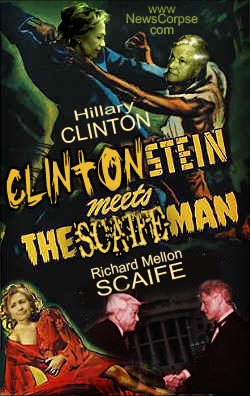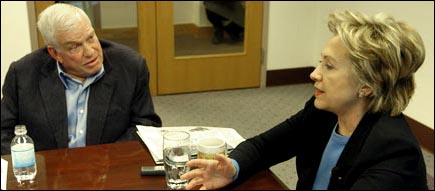An organization called “God Is Not Government” is placing an ad today in Arizona’s Prescott Daily Courier. It is timed to coincide with a campaign visit by John McCain. The ad proclaims that Mitt Romney is “utterly unacceptable” as McCain’s running mate and that choosing him would be a “deal breaker” insofar as their support is concerned.
The funny thing about the God Is Not Government PAC is that the name does not mean what you might expect. It sounds like a declaration of principle but, if you look a little deeper, it actually appears to be a lament. Their website describes their mission as…
“…the election to Congress of men and women who hold conservative beliefs on both moral and economic issues.”
It goes on to state that they will not support any candidate who will not affirm that they are…
“…pro-life, pro-family and stand firmly against the unbiblical welfare state that is destroying the spiritual and economic greatness of our nation.”
In other words, they are an organization that is devoted to electing candidates who are committed to bringing biblical law to Washington, DC. So if God Is not government now, it will be by the time the God Is Not Government PAC is through with it. They even endorsed the only preacher to run in this campaign cycle, Mike Huckabee.
Some of the PAC’s member organizations include religious conservative stalwarts: Concerned Women for America, Faith2Action, Mission America, Republicans for Family Values, Defend the Family, Operation Rescue, and Paul Weyrich’s Free Congress Foundation. Weyrich had actually endorsed Romney earlier in the primary. Ironically, it seems that Romney’s endorsement of McCain has caused Weyrich to flip.
Despite all the tongue-wagging hyperbole, I see this whole charade as a face-saving effort on the part of the social conservatives. The less-than-cordial relationship between McCain and Romney already makes it highly unlikely that McCain would choose him as a running mate. With this show of false bravado, the theo-cons can claim victory when McCain chooses somebody else. Then they can pretend to support McCain as a reward for his acceding to their demands. It’s their way of justifying the compromise of their principles for supporting the candidate they have been railing against for months.
It’s groups like the God Is Not Government PAC that inspired the prayer, “Jesus, save me from your followers.”





 The Pittsburgh Tribune-Review is owned by billionaire right-winger,
The Pittsburgh Tribune-Review is owned by billionaire right-winger, 
 The first full week of the post-Tucker era on MSNBC validates the long overdue decision to cancel the perennial loser. David Gregory’s new program, “Race for the White House,” outperformed Tucker by 35% (Gregory’s first week vs. Tucker’s last week). What’s more, on Friday, Gregory was the second highest rated program on MSNBC’s evening schedule (trailing only Countdown and beating Hardball). He also came in second against his competition, surpassing Wolf Blitzer’s Situation Room on CNN. Tucker never came close to these achievements.
The first full week of the post-Tucker era on MSNBC validates the long overdue decision to cancel the perennial loser. David Gregory’s new program, “Race for the White House,” outperformed Tucker by 35% (Gregory’s first week vs. Tucker’s last week). What’s more, on Friday, Gregory was the second highest rated program on MSNBC’s evening schedule (trailing only Countdown and beating Hardball). He also came in second against his competition, surpassing Wolf Blitzer’s Situation Room on CNN. Tucker never came close to these achievements.